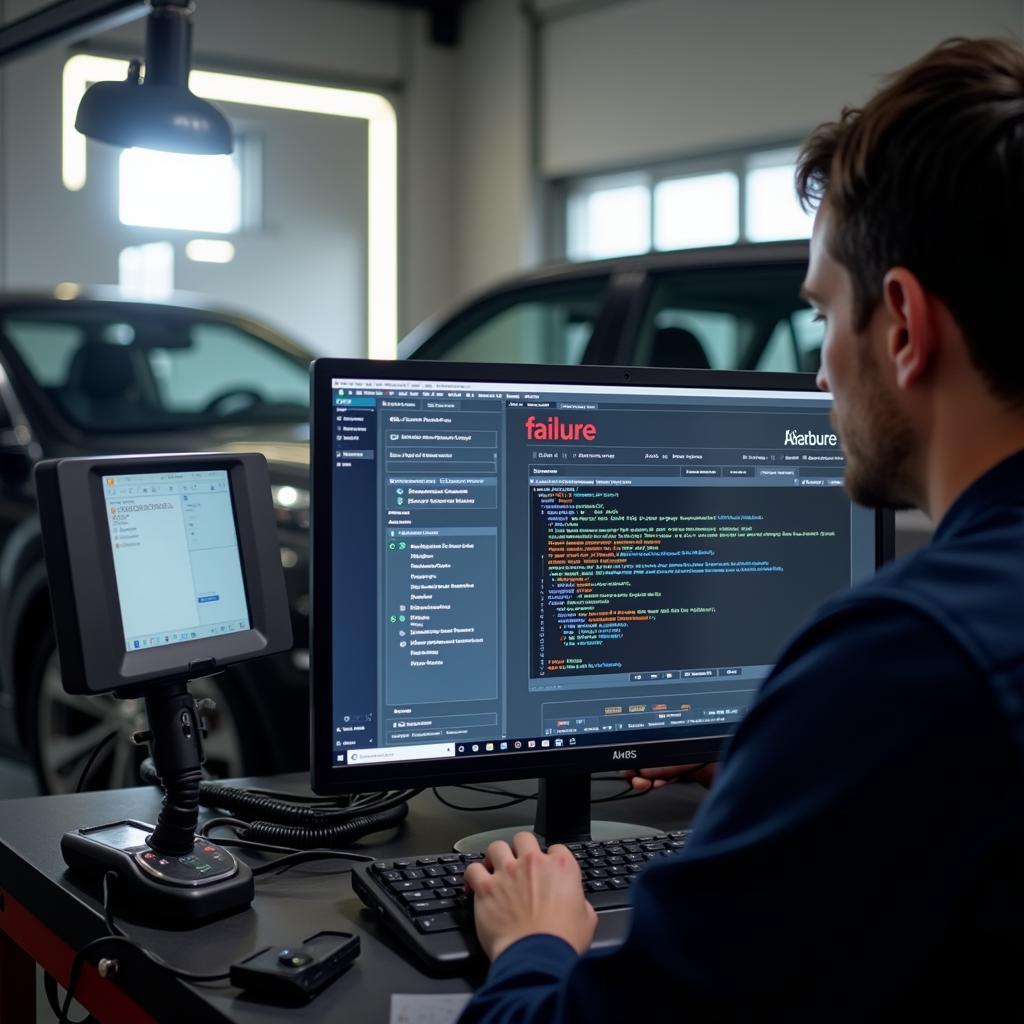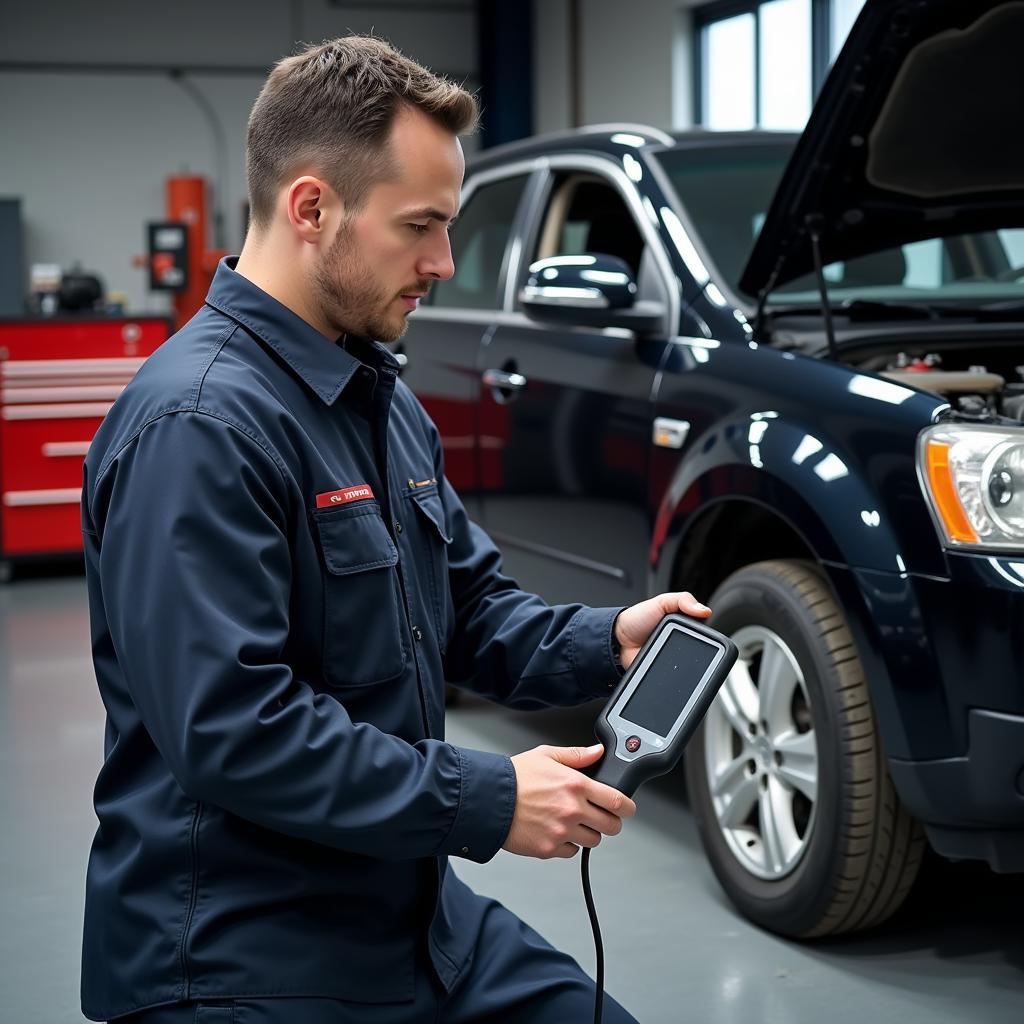You just got your car fixed, expecting a smooth inspection, but it still won’t pass. Frustrating, right? This guide dives into the common reasons why your car might fail inspection even after repairs, and offers practical solutions to help you finally get that passing sticker.
Why Your Car Might Fail Inspection After Repairs
Several issues can cause a car to fail inspection even after repairs. Sometimes, the initial repair wasn’t comprehensive enough, addressing only the symptom and not the root cause. For instance, replacing a worn brake pad without checking the rotor could lead to continued problems. Other times, a new, unrelated issue might have cropped up since the last repair. Regular wear and tear, especially in older vehicles, can lead to unexpected failures. Finally, there might be a miscommunication between you and the mechanic, or perhaps the inspection standards have recently changed.
Common Culprits and Solutions
Check Engine Light Issues
The dreaded check engine light is a frequent inspection roadblock. Even if the initial problem that triggered the light was fixed, the code might not have been cleared, or a new issue could have arisen.
- Solution: Get the codes read by a qualified mechanic. This will pinpoint the exact issue triggering the light. Addressing the root cause, not just the symptom, is crucial.
Brake System Problems
Brakes are a critical safety component, and even minor issues can lead to inspection failure. A common problem is uneven brake pad wear, indicating a potential issue with the caliper or rotor.
- Solution: Have a mechanic thoroughly inspect the entire brake system, including calipers, rotors, pads, and lines. Don’t just assume replacing the pads will solve the problem.
Emission System Failures
Emissions standards are becoming increasingly stringent, making it more likely for a car to fail inspection due to emissions-related issues. Common culprits include faulty catalytic converters, oxygen sensors, and evaporative emission control system components.
- Solution: A thorough diagnostic check is essential to identify the specific component causing the emissions failure. Replacing worn-out parts with quality replacements is key to a successful inspection.
 Car Failing Emissions Test
Car Failing Emissions Test
Lighting and Signal Problems
Something as simple as a burnt-out headlight or taillight can cause inspection failure. Don’t overlook the importance of these seemingly minor components.
- Solution: Thoroughly inspect all lights and signals, including headlights, taillights, brake lights, turn signals, and hazard lights. Replace any burnt-out bulbs promptly.
Tire Issues
Worn or improperly inflated tires can lead to safety hazards and inspection failure. Uneven tire wear can also indicate alignment problems.
- Solution: Check tire pressure and tread depth regularly. If you notice uneven wear, get your alignment checked. Replace worn tires promptly.
Got Car Fixed Still Won’t Pass Inspection? Don’t Give Up!
“Many times, a car failing inspection after repairs is due to overlooking a minor detail. A systematic approach to troubleshooting is key,” says John Davis, a seasoned automotive technician with over 20 years of experience.
 Mechanic Inspecting Car for Inspection Issues
Mechanic Inspecting Car for Inspection Issues
What To Do If Your Car Still Won’t Pass
“Don’t hesitate to seek a second opinion from another mechanic. A fresh perspective can often identify the underlying issue,” advises Sarah Miller, an automotive engineer with extensive experience in vehicle diagnostics.
If you’re still struggling to pass inspection after getting your car fixed, consider contacting us at Autotippro for expert advice. We can help you pinpoint the problem and get your car back on the road.
Contact Autotippro:
Phone: +1 (641) 206-8880
Office: 500 N St Mary’s St, San Antonio, TX 78205, United States
Conclusion
Getting your car fixed and still failing inspection is frustrating, but with a little detective work and the right guidance, you can overcome this hurdle. Remember to address the root cause of the problem, not just the symptoms. By following the advice outlined in this guide, you’ll be well on your way to a passing inspection sticker. Contact AutoTipPro today if you need further assistance.
FAQ
-
What should I do if I disagree with the inspection results? You can usually request a reinspection, but it’s essential to address the identified issues first.
-
How often do I need to get my car inspected? Inspection frequency varies by state, so check your local regulations.
-
Can I perform the repairs myself? While some repairs are DIY-friendly, others require specialized tools and expertise.
-
How much does a car inspection typically cost? Inspection fees vary depending on your location and the type of inspection required.
-
What happens if I drive with an expired inspection sticker? You could face fines or other penalties, so it’s crucial to get your car inspected promptly.
-
Can I negotiate the cost of repairs at a repair shop? In some cases, it’s possible to negotiate repair costs, especially for major repairs.
-
How can I find a reputable mechanic? Ask for recommendations from friends or family, check online reviews, and look for certifications like ASE (Automotive Service Excellence).




Leave a Reply